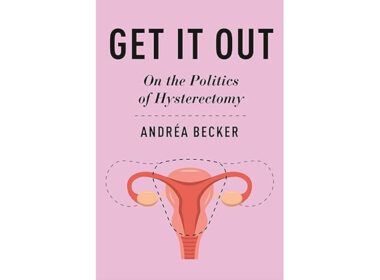As a busy woman with a lot on her plate, I am all for streamlining where possible and making time to focus on the things that are important to me: my family, my work, and my health. I’m often for it when technology makes daily tasks quicker, easier, and cheaper. Grocery shopping from home? Yes, please. Buying a gift online when my child is invited to a birthday party? Absolutely. Working out to a video in my living room rather than driving to the gym? Let’s do this.
And yet I can’t help but see a forest of red flags raised at the prospect of women buying hormonal birth control online or via an app, without having an in-person consultation with a doctor.
The Virtues of the Middleman
“Direct-to-consumer medicine” is a new and rapidly growing e-commerce market that seeks to improve our existing healthcare model in terms of efficiency and convenience by offering prescriptions to reverse hair loss, treat erectile dysfunction, treat skin conditions, and prevent pregnancy by mail. According to an article via Yahoo! (sponsored by Nurx, one of the sites offering the service for birth control), “Gone are the days of being blindsided by unexpected costs, judgy doctors or pharmacists, long waits for appointments and other health care woes.”
A more objective article at the New York Times puts it this way: “The sites invert the usual practice of medicine by turning the act of prescribing drugs into a service. Instead of doctors making diagnoses and then suggesting treatments, patients request drugs and physicians serve largely as gatekeepers.”
In one of the testimonials in that Nurx-sponsored article, Ilena writes, “The customer support team is incredibly helpful. Every time I have a question, like if I’m getting weird symptoms, I always hear back right away.”
We should be concerned about replacing patient-doctor conversations with those of customer support teams—because the priorities of each are inherently different. At my doctor’s office, there are doctors and nurses, but no “customer support team”—because in my doctor’s care, I’m a patient whose health is the first priority, not a customer to whom my provider is looking to sell a product. And because my doctor knows more about me than a survey can communicate, she can help make recommendations for my care as a whole, not with only one concern in mind.
Until recently, advertising for pharmaceuticals—whether online, on TV, or in magazines—concluded with, “Talk to your doctor about…” Now, the doctor is virtually cut out of the equation. Sites like Hims, Hers, Nurx, The Pill Club, and PRJKT RUBY are more like online retail shopping than a trip to the doctor.
Skipping a visit to the doctor’s office and pharmacy is certainly more convenient than dealing with uncertain wait times. Still, we have to consider that in this model, “doctors can’t address secondary issues that surface during a consultation and can’t add information to a patient’s home medical record,” notes Vishal Khetpal, third-year medical student at the Warren Alpert Medical School of Brown University, in his essay “The Worrisome Rise of Direct-to-Consumer Medicine” published at Undark, an editorially independent magazine.
Khetpal says that his conversations with patients usually begin with what brought them in, but typically broaden to include previous diagnoses, new concerns, end-of-life care, and evidence-based preventative measures such as improving diet and scheduling screenings. “We [act] on the concerns of the present,” he says, “but also anticipate the needs of the future.”
Is This the Path We Want to Be On?
The future, indeed. We know that we skim more than read on our screens, so reading that a writer at Slate who used the Pill Club got a list of side effects via text message to which a reply was not required, is less than ideal. We should be concerned that changing access to birth control in this way means there will likely be less informed consent in receiving medications that have a proven history of serious side effects and other possible abuses that are yet to be seen.
Hormonal birth control is often touted as being a safe, healthy choice for women to take control of their sexual lives. That claim has been proven false, by reports of deaths caused by blood clots and the increase in depression in women on hormonal birth control. Too often, hormonal birth control is prescribed to mitigate symptoms of other conditions, rather than seeking out and treating the root cause. This is one of the reasons I use and encourage my family and friends to consider the natural birth control alternatives known as fertility awareness-based methods (FABMs), whether they are sexually active or not. Making access to hormonal birth control even easier and even less concerned with the person popping the pills (or inserting the shot, or giving herself the injections—seriously) seems to me a dangerous road to travel down, particularly when there are other options available.
Personal Decisions Made in an Impersonal Way
For those who have current prescriptions, direct-to-consumer sites offer discreet, unmarked packaging; free shipping (sometimes with treats like chocolate and stickers thrown in); and recurrent deliveries to keep users in supply. In the 38 states where it’s legal, sites also generate new prescriptions. In the latter case, customers fill out an online questionnaire, which the organization says will be reviewed by a licensed medical professional. The customer will be contacted if there are any questions, but the implication seems to be that ideally, most cases will receive the stamp of approval without any direct interaction between the provider and the customer. What’s more alarming is that on these sites, I found it difficult or impossible to find background on the doctors and nurse practitioners writing the scripts.
I get that waiting in line at the doctor’s office is a pain, and that it can feel like we have better things to do. But as Khetpal makes clear, there’s a difference between filling out a questionnaire and discussing the responses with a human being.
Furthermore, a common theme on the sites I researched was that they were not intended to replace primary care physicians. Maybe not intended, but I can see it happening pretty easily. Half the customers at one site said they used the service to get their first hormonal birth control prescription. And if it’s that much easier and costs the same or less, many people would say, why not?
We can’t forget that there’s good reason prescription medications typically allow only a certain number of refills before the patient needs to check in with her healthcare provider. Again, note my use of “patient” here, rather than “customer.” If we get used to healthcare being this expedited, yearly screenings and simply establishing care with a doctor could fall by the wayside without much of a second thought, creating more damage to public health than good.
Supervision TBD
Because this technology is new and developing, the legal system hasn’t quite caught up yet. Customers should be aware that “there is no single federal or state agency in charge of overseeing online prescription drug services.” These services claim not to be “health providers,” which means they quite literally don’t have to play by the same rules as physicians.
What does that look like? Well, for one thing, researchers who have tried out the services to gauge the quality of the sites found, more than once, that important usage information was delivered inconsistently. For another, we’ve been taught since we were children never to take another person’s medication. Yet one site, Kick, sells a blood pressure medication to customers who are interested in its potential side effect of calming performance anxiety. These issues, I fear, are only the beginning. Without instituting ethical and consistent practices, this industry could cause a lot of harm in a field whose focus is supposed to be healing.
At the end of the day, when it comes to something as important as our health, convenient isn’t always better.







